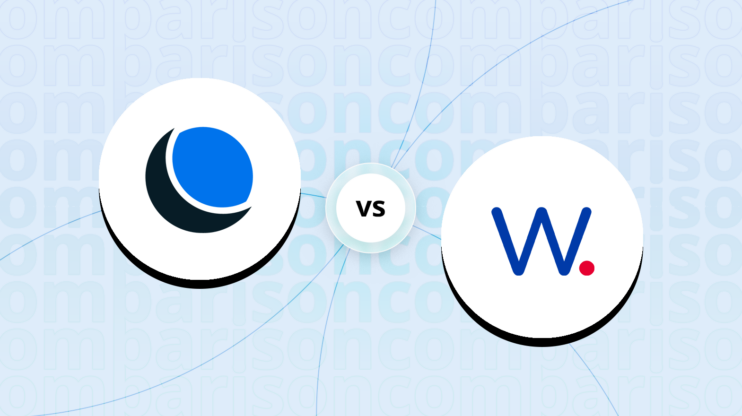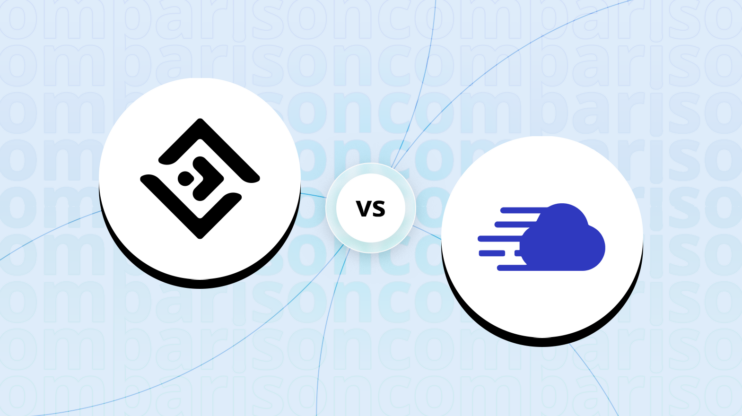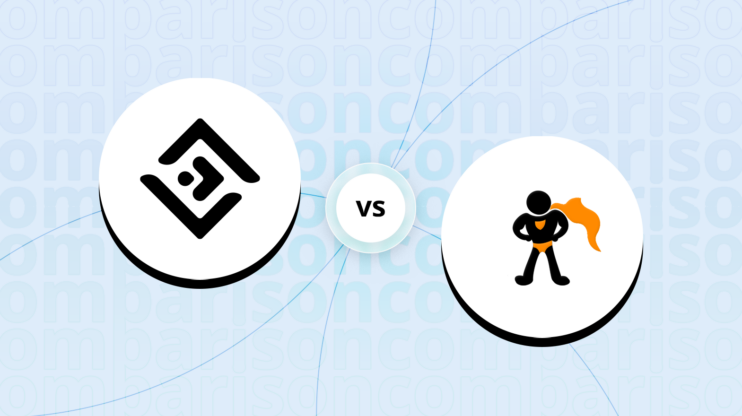OVH Cloud vs Pagely: Final verdict
Looking over OVH vs. Pagely, both are strong candidates in the web hosting space each with unique strengths and weaknesses.
-
Pagely (Overall grade: 8.1)
focuses on premium managed WordPress hosting, offering exceptional uptime guarantees and advanced caching/CDN technology, which is highly beneficial for WordPress sites and eCommerce platforms. Its enterprise-level features such as high availability configurations and scalable solutions through AWS make it a noteworthy option for agencies and high-traffic websites. However, the high price point and focus on WordPress-specific features might be limiting for users looking for more diverse hosting options. -
OVH (Overall grade: 8.2)
offers a broader range of hosting services including shared, VPS, and dedicated hosting, catering to various user needs from small businesses to large enterprises. It excels in performance solutions with significant storage and flexible resource management. Additionally, OVH’s user-friendly control panel and comprehensive support options make it a practical choice for those seeking versatility. While it falls slightly behind Pagely in terms of uptime, its competitive pricing and excellent security features make it a solid option for various hosting requirements.
 Overall grade:8.2 |
 Overall grade:8.1 |
|
|---|---|---|
| Uptime and Availability | 8.2 | 9.5 |
| Hosting Performance | 7.5 | 8.8 |
| Hosting Security | 9.3 | 9.2 |
| Price | 8.7 | 7.4 |
| Hosting Features | 6.6 | 4.6 |
| Ease Of Setup | 8.7 | 8.2 |
| User Management | 8.9 | 8.4 |
| Customer Support | 7.6 | 8.9 |
| User feedback | 3.3/5 | 4.9/5 |
Hosting types offered
Both platforms provide a variety of hosting types, each designed to meet the different needs of users.
 |
 |
|
|---|---|---|
| Shared hosting | ||
| Cloud hosting | ||
| WordPress hosting | ||
| Ecommerce hosting | ||
| VPS hosting | ||
| Dedicated hosting |
Although both offer a variety of hosting plans tailored to different needs, in
certain cases, one platform may prove to be more suitable.
Detailed comparison
Uptime and availability
Evaluates the average uptime statistics, uptime guarantee and overall availability of the hosting
provider
Score Components:
- Uptime percentage (30%): evaluates the uptime statistics in given period of time
- Uptime guarantee (20%): Assesses if the platform offers an uptime guarantee and
whether the actual uptime matches the promised guarantee. - General performance (25%): Evaluates how fast is the average response time and overall
it’s stability. - Responsiveness (10%): Adaptability to different devices and screen sizes.
- Availability (25%): Reflects the total downtime and number of outages.
 8.2
8.2
 9.5
9.5
🏆 Winner Pagely: A superior choice for guaranteed uptime and high availability.

Pagely stands out for its impressive uptime guarantee of 99.99%, ensuring near-constant availability. Its architecture supports scalability and reliability with features like separate availability zones and multi-region redundancy. With 14 global data centers, disaster recovery options, and 24/7 monitoring, Pagely aims to provide consistent service even during peak usage or unexpected incidents.

OVHcloud offers strong performance metrics and a global infrastructure with 43 data centers. Recent improvements in uptime to 99.962% reflect the company’s commitment to better service. Automatic backups, Anti-DDoS protection, and high availability in performance plans add to OVHcloud’s reliability, making it a competitive option although falling slightly behind Pagely in uptime guarantees.
Which one has better hosting performance?
Score Components:
- Hosting speed (30%): This includes SSD quality, Load times, PageSpeed score ranges,
additional information on website speed, built-in plugins for performance enhancement, available caching
methods, and CPU/RAM options - CDN (20%): Considers whether CDN is available or not, whether it’s free or paid, and
the quality of the CDN service - Available data centers (30%): Evaluates the number of data centers and their locations
globally. - Scalibility (20%): Looks at whether elastic scaling is available, the process required
to scale (manual upgrade vs. automatic scaling), the presence of dedicated servers, and the costs
associated with scaling.
 7.5
7.5
 8.8
8.8
🏆 Winner Pagely: When comparing the general performance of OVHcloud’s Performance Web Hosting and Pagely, a few key differences come to light. OVHcloud offers flexibility in CPU and RAM resources, supporting anything from 2 vCores/4 GB RAM up to 8 vCores/16 GB RAM. It also comes with a generous 500GB disk space and unlimited monthly traffic. Pagely, however, focuses on high-end managed WordPress hosting, featuring decoupled database resources and no cap on PHP workers for optimum performance. SSD storage is equally distributed at 50GB across plans. Pagely wins in CDN technology with superior caching, although OVHcloud includes a basic CDN. Pagely provides a managed DevOps support which includes high availability configurations. For data centers, Pagely leverages Amazon AWS, offering robust global reach.
Website Speed
OVHcloud serves well for static and dynamic sites, and it includes high-performance resources and a task automation feature using Crontab. On the other hand, Pagely ensures near-perfect uptime with their 99.99% SLA, which is crucial for mission-critical sites. Pagely’s advanced caching and CDN technology excel in delivering exceptional loading speeds. Furthermore, they offer managed WordPress upgrades ensuring that websites run optimally without user intervention. The absence of caps on PHP workers in Pagely’s plans means that it can handle significant traffic fluctuations, making it faster and more reliable.
Scalability
Scalability is handled differently by each provider. OVHcloud allows incremental upgrades through its Boost Option for handling traffic spikes, costing $0.65 per day. However, the plans themselves need to be manually upgraded. On the other hand, Pagely offers a more streamlined scaling process with their enterprise plans, which support multi-region redundancy. Their High Availability configurations ensure load-balanced and synchronized nodes across availability zones, necessitating higher fees but providing unparalleled scalability. While OVHcloud provides elastic scaling through its control panel, Pagely’s approach offers a seamless, high-availability solution tailored for growing enterprises.
Which one has better security features?
and regulatory requirements
Score Components:
- Technical security measures (40%): This includes encryption, firewalls, DDoS
protection, secure configurations, server monitoring, access control and availability of security addons
(e.g Sitelock security). - Operational security measures (30%): Encompasses data privacy, backups and data
redundancy. - Compliance and certifications (20%): Adherence to legal and regulatory requirements
(e.g., GDPR, HIPAA) and possession of certifications (e.g., ISO 27001, SOC 2). - Business and reliability (10%): Factors in the provider’s reputation, uptime
guarantees, and customer support.
 9.3
9.3
 9.2
9.2
Winner OVHcloud: Offers a robust set of security features meeting diverse compliance requirements.
Technical security measures:
OVHcloud provides a free Let’s Encrypt SSL certificate with all plans and offers additional options like Sectigo DV and EV certificates for an extra cost. Pagely supports both Let’s Encrypt and custom SSL certificates without additional detailed costs. For PHP versions, OVHcloud supports dynamic sites but doesn’t specify exact versions, whereas Pagely provides long-term support for PHP 7.4 or newer through its Zend add-on. OVHcloud includes anti-DDoS protection by default, while Pagely uses AWS Shield Standard for advanced DDoS protection. Both services offer firewalls, however, Pagely also includes a proprietary web application firewall and advanced anti-spam filtering as part of its security measures.
Operational security measures:
OVHcloud and Pagely both offer automatic data backup services, with OVHcloud allowing restore options from 1 to 14 days earlier. Services such as 24/7 uptime monitoring and malware scanning are present in both providers; however, Pagely extends its operational security by incorporating two-factor authentication (2FA) and customizable hosting environments. Both providers offer detailed statistics and logs for tracking, but Pagely includes real-time threat detection and instant incident response, providing a more comprehensive operational security suite.
Compliance and certifications:
OVHcloud showcases an extensive array of compliance certifications, including GDPR, HIPAA, PCI DSS, ISO 27001/27017/27018, and more. Pagely, while robust, lists fewer certifications, emphasizing GDPR, PCI-DSS, and SOC 2 compliance. Both providers meet crucial regulatory requirements, ensuring data protection, but OVHcloud’s broader range of certifications offers more extensive coverage across various regulations and standards.
 |
 |
|
|---|---|---|
| SSL certificate | Free Let’s Encrypt, Sectigo DV/EV | Let’s Encrypt, Custom |
| Additional security features | Anti-DDoS, firewall, backups | DDoS, 2FA, anti-spam, malware |
| PHP versions | Not specified | Long-term support via Zend (7.4+) |
| GDPR compliance | Yes | Yes |
| HIPAA compliance | Yes (US data centers) | Not specified |
| PCI compliance | Yes | Yes |
Hosting features
Score Components:
- Domains (20%): Assesses the availability of a free domain, domain purchase options, and
pricing - Email (15%): Considers if the provider offers full email hosting, or is reselling
third-party service, and if the email is only transactional or not - Website builder (15%): Checks if website builder is available, and it’s user
friendliness and overall the level of customization allowed. - Staging environment (20%): Determines if a staging environment is available, allowing
for testing changes before going live. - FTP & SFTP accounts (10%): Evaluates if and how easily users can access FTP and
SFTP accounts - Git and SSH access (20%): Assess whether Git is integrated into the hosting service and
if SSH access is provided
 6.6
6.6
 4.6
4.6
🏆 Winner OVHcloud: Offers versatile hosting solutions with a range of features at competitive prices.
OVHcloud and Pagely both provide robust hosting solutions, but they cater to different user needs. OVHcloud offers a feature-rich, managed hosting service, which includes unlimited monthly traffic, multi-site management, anti-DDoS protection, and a user-friendly control panel for easy configuration. Its 1-click CMS installation simplifies the setup process for users seeking a straightforward experience. While OVHcloud does not include a free domain, it provides automatic backups and a low entry-level price that appeals to individual users and small businesses looking for affordable options.
Pagely, powered by AWS, focuses on high-performance and reliability with its advanced network security, superior caching, and CDN technology. It automatically updates WordPress core, plugins, and themes, ensuring optimal security and performance. Pagely’s customizable staging environments allow users to test and deploy changes effortlessly. While Pagely’s plans start significantly higher, it includes high-end features like expert support, developer-friendly tools, and rapid provisioning within 1-3 business days. Pagely is ideal for enterprises needing robust dedicated resources and high availability.
 |
 |
|
|---|---|---|
Free domain |
No |
No |
Free SSL |
Yes |
Yes |
Email hosting |
Yes |
No |
Website builder |
1-click CMS installer |
No |
Staging environment |
No |
Yes |
FTP & SFTP accounts |
Yes |
Yes |
Git and SSH access |
Yes |
Yes |
Free backup |
Yes |
Yes |
Money back guarantee |
No |
No |
a location.
As a result in rare cases the features mentioned here can differ from the ones you see on their websites.
Both providers support a range of users from beginners to experts with user-friendly website builders and WordPress staging areas. However, in terms of developer tools, both OVHcloud and Pagely offer robust options including SSH access, support for multiple programming languages, and Git for version control, thus appealing to developers looking for advanced capabilities.
Email services:
Email services at OVHcloud provide comprehensive email hosting with up to 1000 email addresses available on its highest plan. This allows users to set up their email campaigns directly from the hosting platform. Pagely, on the other hand, focuses more on critical enterprise hosting needs and does not offer direct email hosting services. For email campaigns, Pagely users may need to integrate third-party services like Google Workspace or Outlook, which can be an additional cost depending on the service chosen. This makes OVHcloud more suitable for users needing built-in email solutions.
Price
Score Components:
- Plan value (40%): What each pricing tier offers.
- Transparency and clarity (30%): Clearness of pricing structures.
- Flexibility of plans (20%): Range of options to suit different budgets.
- Hidden costs (10%): Additional expenses not included in the plan.
 8.7
8.7
 7.4
7.4
🏆 Winner: Offers diverse and budget-friendly plans with excellent flexibility and performance options.
Evaluating the pricing of plans among various hosting providers can be complex due to their differing pricing and renewal strategies. Additionally, certain plans require annual commitments, which adds to the difficulty of making comparisons. The prices listed are based on monthly commitments; plans requiring annual commitments are indicated. Additionally, although some providers offer identical plans for WordPress and shared hosting, we have created separate tables for each to enhance clarity.
OVHcloud and Pagely provide a broad array of hosting plans that differ significantly in pricing and features. OVHcloud offers shared and cloud hosting with budget-friendly plans starting as low as $1.04/month and including various features like free domain names and SSL certificates. Pagely, on the other hand, caters to high-end users such as developers and large enterprises, with prices starting from $199/month and offering customized plans loaded with performance and security features. OVHcloud generally ranks higher in value for price due to its flexibility and affordability.

|

|
|---|---|
|
Starter Web Hosting$1.04
1 website, 1 GB storage, 2 email addresses, free domain name, WordPress installed.
Value for price:9.0
|
Performance Lite$375
No cap on PHP workers, 2 vCPU, 4 GB RAM, 50 GB SSD storage, managed DevOps and support.
Value for price:6.5
|

|

|
|---|---|
|
Starter Web Hosting$1.04
1 website, 1 GB storage, 2 email addresses, free domain name, WordPress installed.
Value for price:9.0
|
Developer 1$199
No cap on PHP workers, 2 vCPU, 2 GB RAM, 30 GB SSD storage, managed DevOps and support.
Value for price:6.0
|

|

|
|---|---|
|
Starter Web Hosting$1.04
1 website, 1 GB storage, 2 email addresses, free domain name, WordPress installed.
Value for price:9.0
|
Developer 2$299
No cap on PHP workers, 2 vCPU, 4 GB RAM, 30 GB SSD storage, managed DevOps and support.
Value for price:6.5
|
Enterprise plans
OVHcloud’s Performance Web Hosting ($13.19/month) offers up to 500GB storage, 1000 email addresses, high-performance resources, and CDN Basic included. Pagely’s Enterprise Class WordPress Hosting costs from $2500/month and provides multi-region redundancy, enhanced SLAs, and dedicated technical account management. While Pagely is tailored for higher-end enterprise needs, OVHcloud provides substantial features for a fraction of the cost, making it appealing for businesses looking for budget-friendly and high-performance plans.
OVH Cloud vs Pagely: Ease of setup
platform.
Score Components:
- Site migration (25%): Assesses whether the provider offers tools for site migration,
either automated or manual, and whether these services are free or require a fee. - Admin panel usability (35%): Evaluates the type of admin panel provided, such as the
standard cPanel or a custom solution, focusing on its accessibility and user-friendliness for both
technical and non-technical users. - Setup features (20%): Examines the availability and ease of use of various setup
features, including FTP accounts, file managers, email account setup, PHPMyAdmin, and easy CDN
configuration. - Help center quality (20%): Measures the quality and accessibility of the provider’s
help center resources, including articles and tutorials.
 8.7
8.7
 8.2
8.2
🏆 Winner OVHcloud: Works best for users seeking a managed hosting solution with simplified setup and extensive support resources.
OVHcloud provides a centralized control panel that simplifies product and service configurations. Their OVHcloud Control Panel is user-friendly, suitable for both technical and non-technical users. It eases the setup process with features like 1-Click CMS installation for popular tools like WordPress and Joomla!, while also allowing access via FTP Explorer, FTP Client, or SSH. The integration of automatic backups is particularly beneficial, ensuring data is safeguarded and easily restorable.
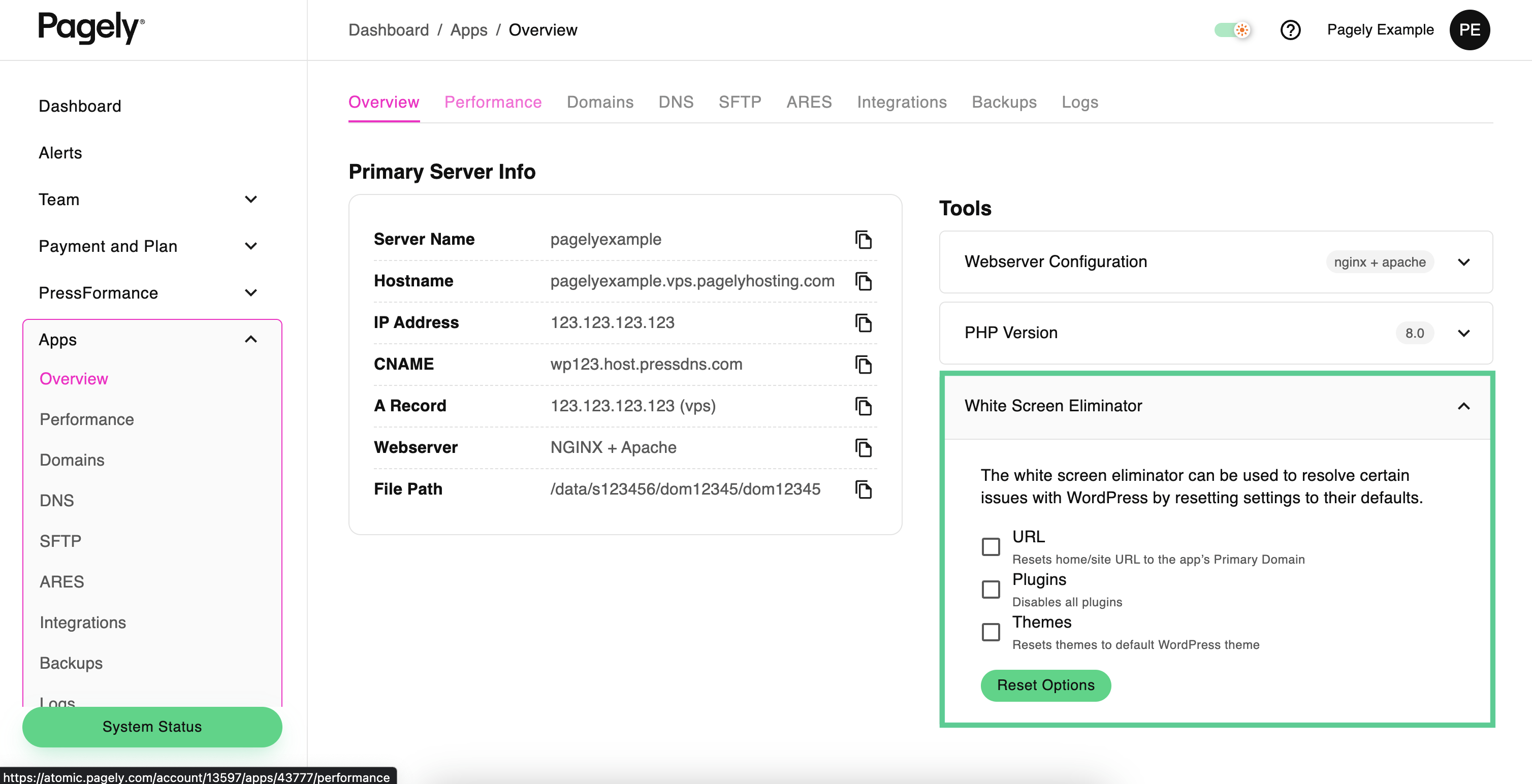
On the other hand, Pagely focuses exclusively on managed WordPress hosting, offering setup through support channels like ticket and chat. WordPress-specific tools are accessible, though users need to manage the installation process, which takes a day. While Pagely also aims for ease of use, especially for those familiar with WordPress, it requires more hands-on involvement initially compared to OVHcloud’s more automated setup.
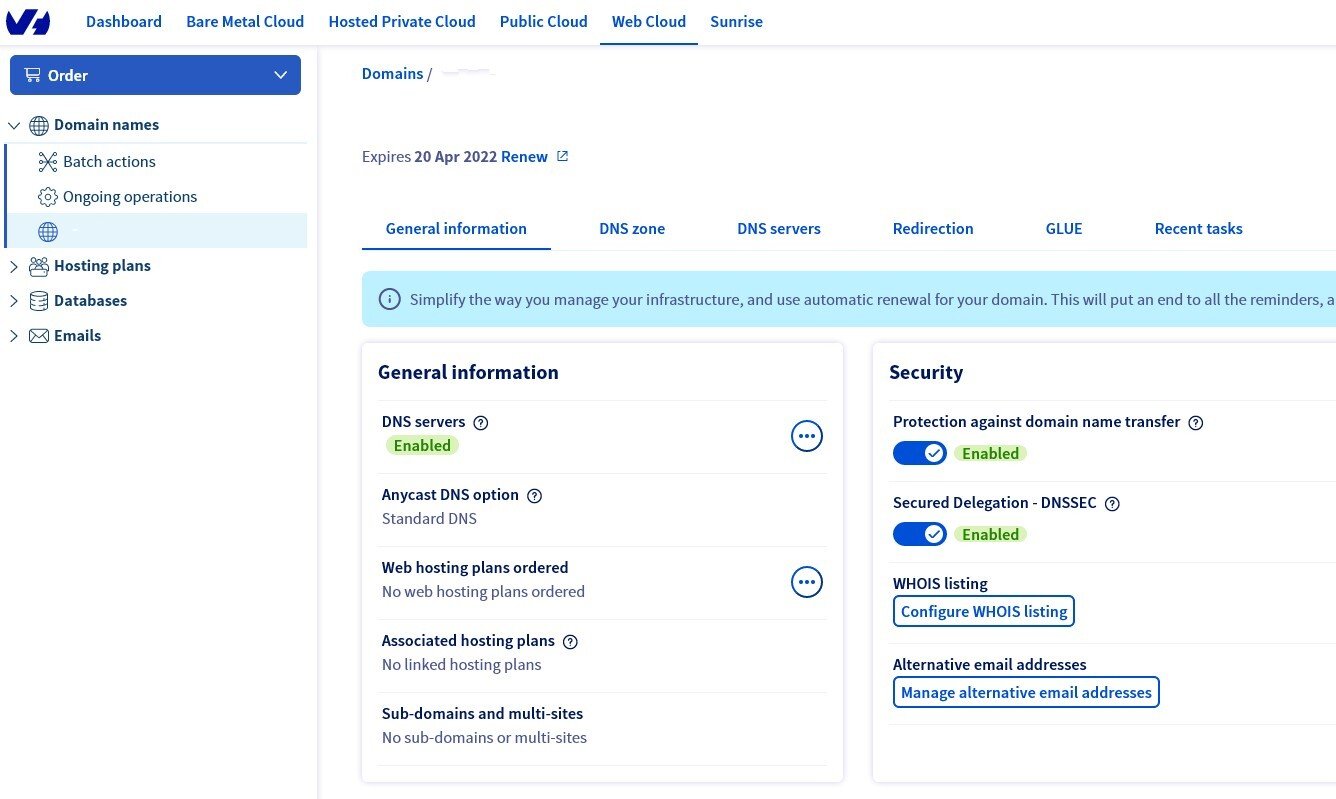
Both ovh and pagely provide migration tools, but the range and inclusivity differ. OVHcloud offers built-in FTP Explorer, FTP Client, or SSH for manual migrations, with no extra cost for these tools. Pagely, specialized in WordPress, leverages specific tools like PressMIGRATE to facilitate WordPress site migrations, which also includes staging environments. However, there’s no explicit mention of whether these migration services are free or chargeable, which could be a deciding factor depending on your needs.
OVHcloud’s support system includes multilingual guides, an extensive help center, and an active community, providing a variety of resources for different technical levels. They also have a marketplace and partner program for expanded options and exclusive benefits. Pagely offers a comprehensive knowledge base tailored to WordPress, covering a wide range of topics from basics to advanced features. Their focus is more specialized, while OVHcloud offers broader resources for different platforms.
User management
accessibility.
Score Components:
- Role customization (40%): Flexibility in creating and defining user roles and
permissions. - Ease of management (30%): User interface and tools for managing users.
- Access control (20%): Effectiveness of access control measures for different user
levels. - Scalability (10%): Ability to manage a growing number of users efficiently.
 8.9
8.9
 8.4
8.4
🏆 Winner: OVHcloud:
A versatile and detailed model for managing user roles and access control.
OVHcloud allows for highly detailed customization when it comes to user roles and permissions through its OpenStack system. Roles such as Administrator, Network Operator, and Infrastructure Supervisor can be precisely defined, depending on the user’s requirements. OVHcloud enables an unlimited number of user accounts, which allows for expansive and flexible role management. Each user can have multiple roles, and the roles can be modified or updated as needed, ensuring that the access control structure remains dynamic and adaptable. On the other hand, Pagely offers fewer but still highly structured roles, such as Account Owner, Super-Admin, and Sub-Admin, ensuring efficient site and user management. While Pagely’s roles are tailored towards different admin levels and specific functions, OVHcloud provides more granular control over the specific tasks users can perform within the infrastructure.
OVHcloud users can manage roles and permissions via the OVHcloud Control Panel, which also offers the ability to generate configuration files for tools like the OpenStack CLI and Rclone directly. This simplifies the automation of user tasks and integrations with other systems. Pagely provides an interface for account and user management, along with detailed role-based permissions, but does not offer the same level of automation and tool integration. Pagely’s system is more straightforward, aiming for ease of use, with clear roles like Account Owner and Tech that cover the majority of administrative tasks without superfluous complexity.
In terms of access control measures and scalability, OVHcloud stands out with its unlimited user creation and the ability to precisely define roles and permissions. This makes it particularly effective for organizations that expect to scale up their user base over time. The ability to group multiple roles for a single user adds another layer of flexibility, which is critical for managing extensive infrastructures. Pagely, though highly efficient with its role definitions and 2-factor authentication options, offers a more static approach to access control that may not accommodate rapid scalability as effectively.
OVHcloud user roles table:
| Role | Description | Access highlights |
|---|---|---|
| Administrator | Full control over infrastructure | Manage all cloud resources, create and delete environments, oversee operations |
| Network Operator | Manages network components | Control network settings, configure security groups, and manage traffic rules |
| Infrastructure Supervisor | Oversees all infrastructure-related tasks | Monitor infrastructure performance, ensure system health, handle backups |
| ObjectStore Operator | Manages storage activities | Manage object storage, create and manage object buckets, control data access |
| Image Operator | Handles creation and management of images | Create and test private images, manage image inventory, optimize image deployment |
| Compute Operator | Manages compute resources | Provision and manage virtual machines, scale compute instances, allocate resources |
Pagely user roles table:
| Role | Description | Access highlights |
|---|---|---|
| Account Owner | Full account control, billing handling | Create admin users, enforce 2-factor authentication, manage sites, access backups |
| Super-Admin | High-level site and user management | Site management, SSH access, SFTP into sites, manage site-level users |
| Sub-Admin | Site management, limited user admin role | Manage sites, SSH/SFTP access, oversee site-level users |
| Tech | Technical site management and maintenance | SSH/SFTP into sites, access backups, manage aliases |
| Billing | Financial management and site access | Handle billing, SFTP into sites, access backups, manage aliases |
| App-Only | Application-focused site management | Manage SSH/SFTP keys, access backups, manage aliases |
| App-Only-Minimal | Minimal application management | Access specific site-related tasks, manage aliases |
Customer support
hosting provider.
Score Components:
- Support communication channels (30%): Measures the variety of customer support types
provided (live chat, chatbot, email, phone, etc.) - Availability (20%): Assesses the availability hours for each channel, including 24/7
support options. - Technical support quality (30%): Assesses whether the provider offers comprehensive
technical support, including hardware upgrades (e.g., HDD to SSD), software installations, and web
server configuration changes. - Enterprise support (20%): Checks if there are dedicated or priority support services
for enterprise-level customers.
 7.6
7.6
 8.9
8.9
🏆 Winner
Pagely: Pagely offers considerable advantages in customer support responsiveness and overall satisfaction, making it a preferred choice for those seeking reliable hosting services.
 |
 |
|
|---|---|---|
Phone support |
||
Live chat support |
||
Chatbot |
||
Email/ticket support |
||
Enterprise support (dedicated agent, priority support) |
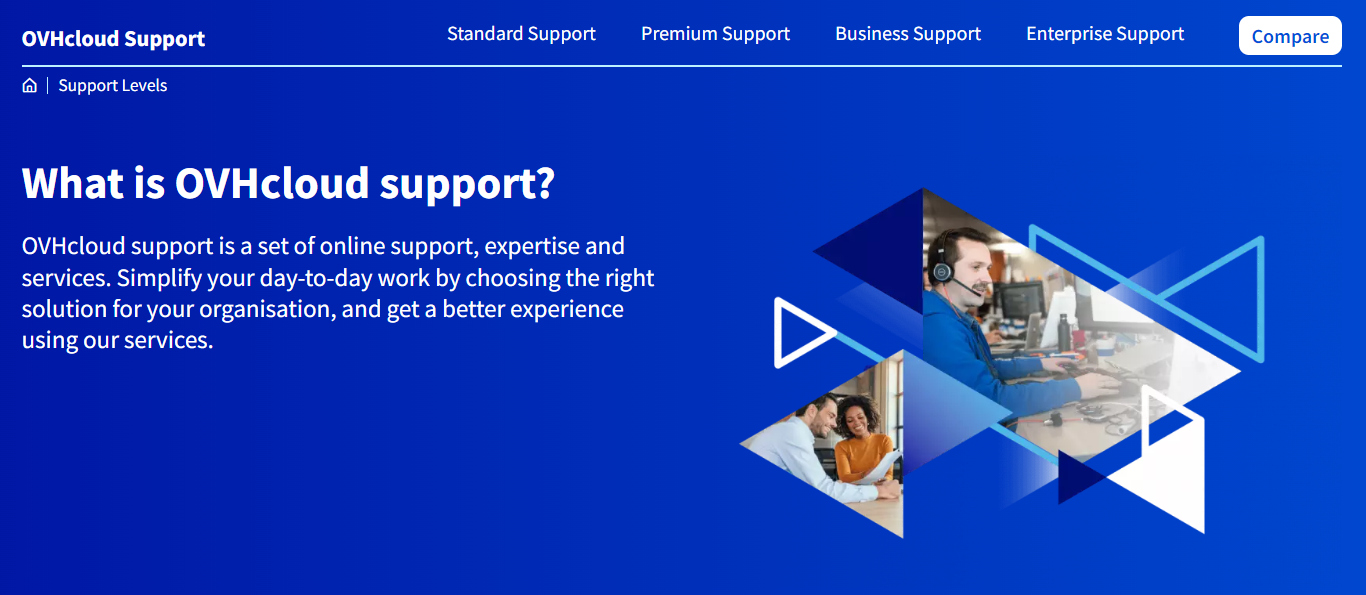
OVHcloud provides multiple levels of customer support tailored to different needs, from standard support suitable for non-critical environments to enterprise-level support for critical production environments. However, its standard support options are limited, and higher-tier support levels come at a significant cost. Hotlines are available only on weekdays during working hours, and the live chat feature, although promised, has yet to be launched.
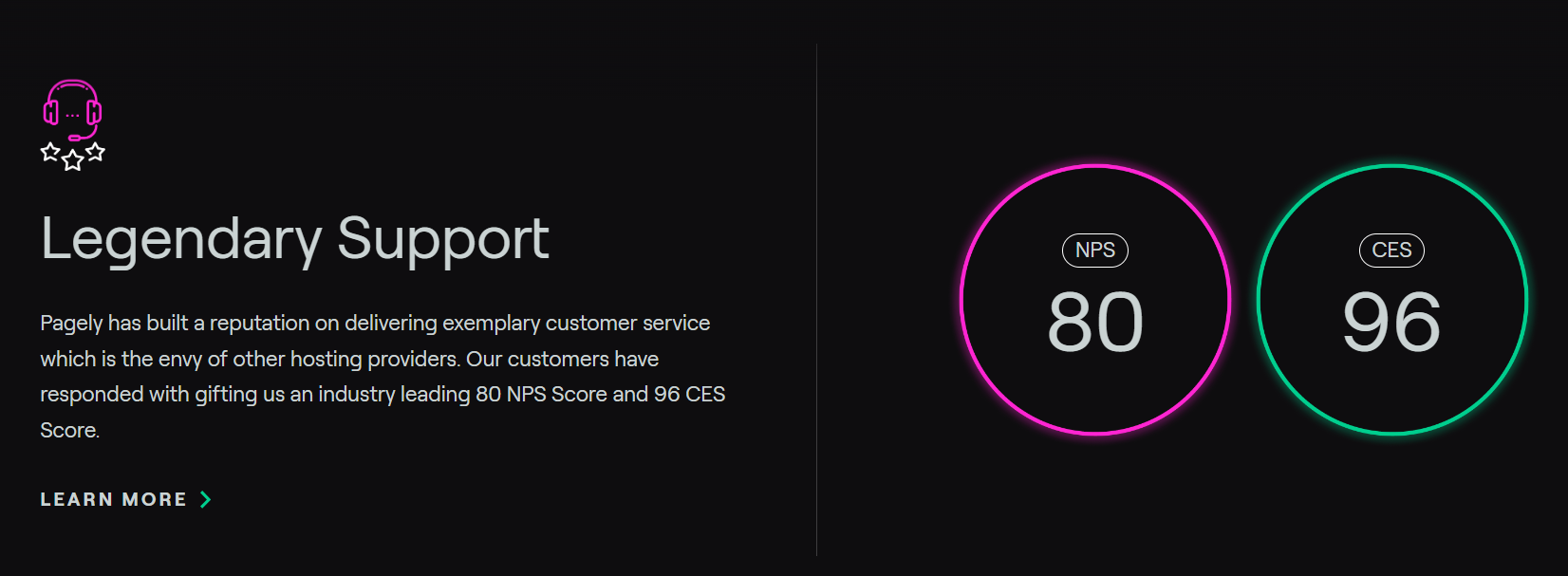
Pagely, on the other hand, offers 24/7 support through multiple channels including support tickets and live chat. Their tierless support system ensures all customer inquiries are handled by capable engineers, resulting in quicker and more efficient issue resolution. With a high customer satisfaction rating and numerous contact options, Pagely stands out for its accessibility and responsiveness.
OVH Cloud vs Pagely: User feedback
User feedback for this hosting provider is highly mixed. Many users appreciate its competitive pricing, extensive range of services, and reliable data centers, noting the company’s strong network performance and eco-friendly initiatives. However, numerous reviews criticize the extremely poor customer support, slow response times, and frequent service disruptions. While some professionals find the platform efficient for their needs, others have experienced significant issues with billing discrepancies, delayed server provisioning, and unresolved technical problems. Overall, the provider receives praise for its value and scalability but falls short in customer support and reliability for many users.
Users highly appreciate this hosting provider for its exceptional reliability and top-notch customer support, often comparing it to having an on-call DevOps team. The platform is praised for its speed, security, and a suite of features designed specifically for WordPress hosting. Many find the management tools intuitive and effective, though some express a desire for improvements in specific areas like the Atomic dashboard and multi-user access. The main criticism revolves around the high cost, which is noted as a barrier for smaller operations, but many users agree the premium price is justified by the service’s quality and reliability.
OVH Cloud vs Pagely: FAQ
Which platform is better suited for hosting WordPress websites?
Pagely is the superior choice for hosting WordPress websites as it specializes in managed WordPress hosting and offers advanced tools and support specifically for WordPress. Pagely excels with its high performance, reliability, and features like advanced caching, CDN technology, and managed DevOps support, making it highly beneficial for WordPress sites.
Which hosting service offers better security features?
OVHcloud and Pagely both provide robust security features, but they cater to different needs. OVHcloud includes anti-DDoS protection, free SSL certificates, and a range of compliance certifications. Pagely offers advanced DDoS protection with AWS Shield, a proprietary web application firewall, and extensive operational security measures such as 2FA and real-time threat detection. Overall, Pagely offers more advanced and comprehensive security features.
What are the major differences in pricing and value between ovh and pagely?
OVHcloud offers budget-friendly plans starting as low as $1.04/month, which include various features like free SSL certificates and substantial storage. Pagely, on the other hand, targets high-end users with plans starting from $199/month and up, offering advanced performance and security features. OVHcloud generally provides better value for price due to its flexibility and affordability, whereas Pagely justifies its higher price with premium, enterprise-level services.
Which service is more suitable for hosting a high-traffic website?
Both OVHcloud and Pagely are suitable for high-traffic websites, but they approach scalability differently. OVHcloud offers flexible resource management with options to manually upgrade plans and handle traffic spikes. Pagely provides seamless scaling with enterprise plans supporting multi-region redundancy and high availability configurations. For a more streamlined and high-performing solution, Pagely is the better option for hosting high-traffic websites.
How do the providers handle email hosting and what features are included?
OVHcloud offers comprehensive email hosting with up to 1000 email addresses available on its highest plan, making it more suitable for users needing built-in email solutions. Pagely does not include direct email hosting services, requiring users to integrate third-party services like Google Workspace or Outlook. This makes OVHcloud more convenient for users needing integrated email hosting features.
The making of this blog
We followed a clear, step-by-step process to write and research this article.











